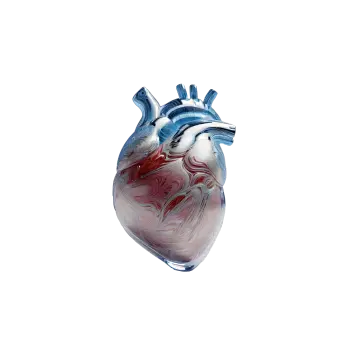Stress is an established risk factor for cardiovascular disease for several reasons. Research has shown that long-term or chronic stress can affect the body in ways that increase the risk of developing cardiovascular diseases. Here are some of the key ways in which stress can impact the heart and vascular system:
Increased blood pressure:
Stress triggers the body's "fight-or-flight" response, causing the heart to beat faster and blood vessels to constrict. This can raise blood pressure for short periods. If stress becomes chronic, it can result in prolonged high blood pressure, which is a significant risk factor for cardiovascular diseases like heart attacks and strokes.
Altered blood lipids:
Some individuals tend to eat unhealthy foods or consume alcohol excessively as a coping mechanism for stress. This can lead to higher levels of harmful blood lipids, such as LDL cholesterol and triglycerides, which are risk factors for cardiovascular disease.
Increased smoking and alcohol consumption:
People experiencing stress may be more prone to smoking tobacco or consuming alcohol excessively, which is also linked to an increased risk of cardiovascular diseases.
Impact on lifestyle factors:
Stress can affect a person's ability to make healthy choices, including maintaining a balanced diet, exercising regularly, and getting enough sleep. These factors are all crucial for cardiovascular health and can be negatively affected by chronic stress.
Important to manage and reduce stress
Chronic stress can impact several biological and behavioral factors that increase the risk of cardiovascular diseases. Therefore, it is essential to manage and reduce stress in a healthy way through strategies that include relaxation techniques, regular exercise, a healthy diet, and social support to promote heart-friendly lifestyles and reduce the risk of cardiovascular diseases.
Common cardiovascular diseases
Cardiovascular diseases are a group of conditions that affect the heart and blood vessels. Among the most common cardiovascular diseases are coronary artery disease, which involves blockages in the blood vessels that supply the heart with oxygen. Heart failure is a condition where the heart does not pump enough blood to meet the body's needs. Vascular spasm, or vascular disease, affects blood vessels and can lead to issues such as strokes and peripheral vascular disease. Diabetes is also a significant risk factor for cardiovascular diseases. It is of utmost importance to prevent and manage these diseases through a healthy lifestyle and regular medical follow-up.






















